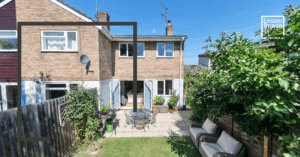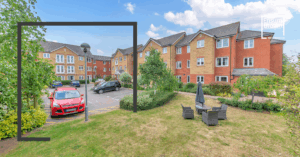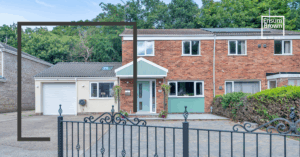Every year, around 5.6 million keys of all types are lost in the UK.* For landlords, one of the most common late-night phone calls comes when tenants have locked themselves out of their property. While frustrating, there are several steps you can take to minimise the disruption and cost when this happens.
Beware of self-locking doors
One of the most frequent causes of a lockout is the type of lock that automatically clicks shut as soon as the door closes. A gust of wind or a moment’s distraction is often all it takes for tenants to find they have locked themselves out. If you are replacing locks, it may be worth avoiding this type of mechanism altogether.
Have spare keys available
It is far cheaper to have spare keys cut than to call out an emergency locksmith. Provide tenants with at least two keys for every external door, and ensure you keep a couple of spares yourself.
For flats or apartments with fob entry systems, always arrange to have spare fobs available as well. This simple step can save everyone a great deal of stress if tenants find they have locked themselves out.
Spread the risk sensibly
It is perfectly acceptable for landlords to keep a set of spare keys. However, you must never enter the property without the tenant’s agreement, except in cases of emergency. Keys should be stored securely at all times.
If you use a letting agent, ask whether they provide a key-holding service. Many agents can handle tenant lockouts on your behalf, which can be a valuable time-saver.
Keep locksmith contact details handy
Not all lockouts are caused by lost keys. A broken lock or damaged key may leave tenants unable to gain access, even if they have the correct key. For this reason, it is wise to keep the details of two or three trusted local locksmiths saved in your phone so you can respond quickly in an emergency.
Check your landlord’s insurance
Some landlord insurance policies cover the cost of replacing locks and keys. Always review the small print to check what is included, any excess payable, and the maximum claim limit. Choosing the right insurance can help ease the financial impact if tenants have locked themselves out.
Who is responsible for lost keys?
Tenancy law allows landlords to charge tenants for the reasonable cost of replacing lost keys or entry fobs. If necessary, these costs can be deducted from the deposit at the end of the tenancy.
However, landlords remain responsible for the repair or replacement of faulty locks, as these are considered part of the property’s structure and safety.
When tenants find they have locked themselves out, it can be stressful for both parties. By preparing in advance with spare keys, reliable locksmith contacts and the right insurance cover, you can reduce the inconvenience and cost.
If you would like to learn more about how our letting and property management services can make your life as a landlord easier, please get in touch.
If you know a landlord who might find this guide useful, feel free to share it with them.
*Source: Door Industry Journal
Important Links
Book a Lettings Valuation
Visit our Royston Facebook Page
Visit our Newmarket Facebook Page
View our Ware Facebook Page





